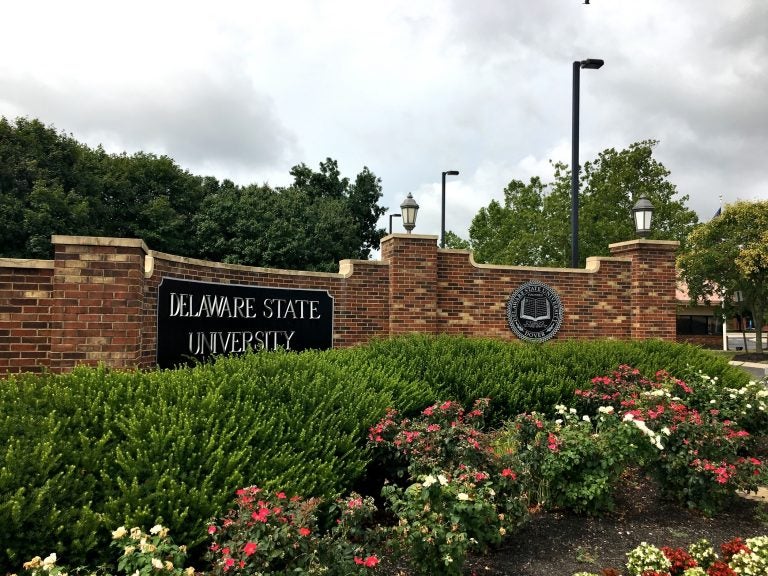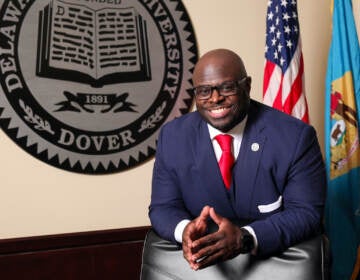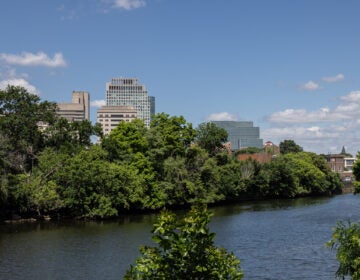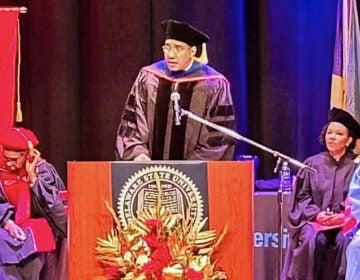Del. State University joins federal effort to ‘feed the future’ and fight global hunger
Delaware State is the first HBCU to join the U.S. Agency for International Development’s effort to fight food insecurity in Africa and elsewhere.

Delaware State University's campus. (Mark Eichmann/WHYY)
Students and researchers at Delaware State University will be able to help countries struggling with food insecurity through a new agreement with the U.S. Agency for International Development. USAID was created by President Kennedy in 1961 to coordinate the federal government’s international development and humanitarian missions.
The agreement with DSU will support USAID’s Feed the Future program, an effort to combat global hunger by assisting farmers in a dozen countries including Bangladesh, Guatemala, Honduras, and seven African nations.
DSU president Tony Allen says the Dover-based university is well-positioned to help.
“HBCUs like Delaware State have already established a strong network of relationships overseas among students and faculty,” he said. “We have considerable agriculture-related technical expertise and know how to work with low-income, dispersed and rural Indigenous communities.”
As part of a Memorandum of Understanding signed this week, USAID will help DSU develop new learning opportunities focused on “sustainable practices and the benefits of environmental and natural resource security.” The MOU also calls for DSU students and researchers to help develop solutions including “improvement of crops and livestock, food safety, reduction of post-harvest losses, research on fruits and vegetables, improved agronomic practices, extension, capacity-building, and access to clean water.”
Allen said the agreement, which school officials say is the first of its kind for an HBCU, shines light on work DSU has already been focused on.
“This is a moment to get the light, to lift up in a significant way that work,” he said. “If you want to invest in an institution committed to bringing folks from all different backgrounds together, getting them across the finish line so they can be better citizens and exceptional professionals in the discipline, there is not a better investment than in HBCUs.”
The school’s Global Institute for Equity, Inclusion, and Civil Rights will coordinate much of the work at DSU under the direction of interim director Michael Casson, who also heads up the College of Business.
“These are critical collaborations,” Casson said. “We know that both food and water insecurities around the world are spiking upward again, and that here in America we are not immune to the challenges impacting Africa, Asia, and Latin America.”
DSU is expected to collaborate with other HBCUs on special projects related to the USAID effort including workshops, conferences, and other community outreach initiatives.
Last year, the school’s Center for Global Africa hosted a virtual conference focused in part on improving food security in Africa, which included an address from H.E. Julius Maada Bio, the president of Sierra Leone.
The agreement is the latest national role for DSU and Allen. Last month, President Biden picked Allen to lead the administration’s Board of Advisors on HBCUs. In that role, he’ll work to advance the HBCU Initiative, first created by the Carter administration. The initiative aims to increase the capacity of HBCUs to provide the highest-quality education to their students and continue serving as engines of opportunity.
“It’s our time, our moment,” Allen said. “We’re not just standing here for Delaware State University, but for every Historically Black College and University across this country.”
WHYY is your source for fact-based, in-depth journalism and information. As a nonprofit organization, we rely on financial support from readers like you. Please give today.






